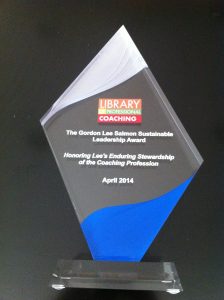
This essay concerns something called Generativity—a concept about adult development that was first introduced by Erik Erikson. With his wife and collaborator, Joan Erikson and a young associate, Helen Kivnich, Erikson describes generativity in his final book as “a vital strength of care [and as] a widening concern for what has been generated by love, necessity, or accident; it overcomes the ambivalence arising from irreversible obligation. Thus, [it] attends to the needs of all that has been generated.” (Erikson, Erikson and Kivnick, 1986, p. 37) Generativity stands in sharp contrast to a state of stagnation where there is a narrowing concern for matters residing outside our self. Our concern about oblivion (our own death) leads us to selfish concern about our own welfare rather than the welfare of other people in our life.
Most importantly, generativity can be a source of inspiration and motivation for those of us serving as professional coaches who wish to engage in work on behalf of the Greater Good in their local community, their nation, their environment –and ultimately their world. Conversely, stagnation can result from a singular devotion of our clients to their own restricted interests and from a failure to consider in any way the Great Good. It is to the themes of Generativity and Stagnation that I turn in this essay and it is to the work and life of two men that I turn to exemplify the ways in which generativity (in four roles) shows up in the engagement of coaching for the Greater Good.
 The first of these men is Lee Salmon, for whom an award offered by the Library of Professional Coaching (LPC) is named: the Gordon Lee Salmon Sustainable Leadership Award. The second man is Rey Carr, who recently received the latest version of this award. Both men spent many years providing coaching services. Both engaged all four roles of generativity in their nurturance of the field of professional coaching—on behalf of the greater good.
The first of these men is Lee Salmon, for whom an award offered by the Library of Professional Coaching (LPC) is named: the Gordon Lee Salmon Sustainable Leadership Award. The second man is Rey Carr, who recently received the latest version of this award. Both men spent many years providing coaching services. Both engaged all four roles of generativity in their nurturance of the field of professional coaching—on behalf of the greater good.
















